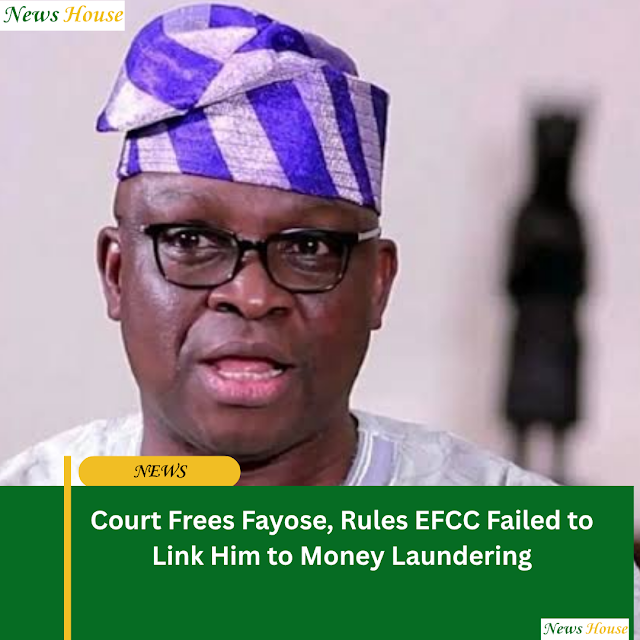Lagos July 16, 2025
In a significant legal victory, former Ekiti State Governor Ayodele Fayose has been discharged and acquitted of all money laundering charges by a Federal High Court in Lagos. Justice Chukwujekwu Aneke upheld Fayose’s no‑case submission, finding that the Economic and Financial Crimes Commission (EFCC) failed to establish a prima facie case warranting a defence.
Charges & Legal Timeline
-
Fayose was initially arraigned in 2018 on 11 counts alongside his company, Spotless Investment Limited, accused of receiving ₦1.2 billion and $5 million in cash during his 2014 re-election campaign.
-
The EFCC alleged he laundered a total of ₦1.6 billion through proxies and companies including De Privateer Ltd and Still Earth Ltd.
-
The defense, led by Chief Kanu Agabi (SAN) and Olalekan Ojo (SAN), submitted on May 16 that the prosecution failed to show any credible link between Fayose and the alleged offences, and noted crucial witnesses—like alleged middleman Abiodun Agbele—were not charged.
Defense Arguments
Chief Agabi argued the prosecution’s case was built on inference rather than evidence, with no co-conspirator formally charged. He described the purported predicate offences, such as criminal breach of trust and conspiracy, as unsubstantiated.
EFCC’s Case Rejected
Justice Aneke found that the EFCC’s evidence was insufficient: the prosecution failed to prove that Fayose either received or controlled the funds in question. Consequently, the court said there was no reason to require him to enter a defence.
📌 Why It Matters
-
Legal precedent: The ruling reinforces the high burden on prosecuting agencies to establish a prima facie case in complex financial cases.
-
Judicial scrutiny: It raises concerns about prosecutorial strategy when all key participants in alleged transactions are not charged.
-
Political implications: Fayose is now free from serious legal encumbrances, a potential advantage as he eyes 2026-27 political ambitions.
🔍 What’s Next
-
The EFCC may appeal the ruling, following its history of challenging similar acquittals.
-
Fayose and his legal team will likely seek compensation, citing prolonged legal battle and reputational damage.
-
Watch for public and political reaction, as the outcome may reignite debates on accountability, governance, and anti-corruption measures in Nigeria.


